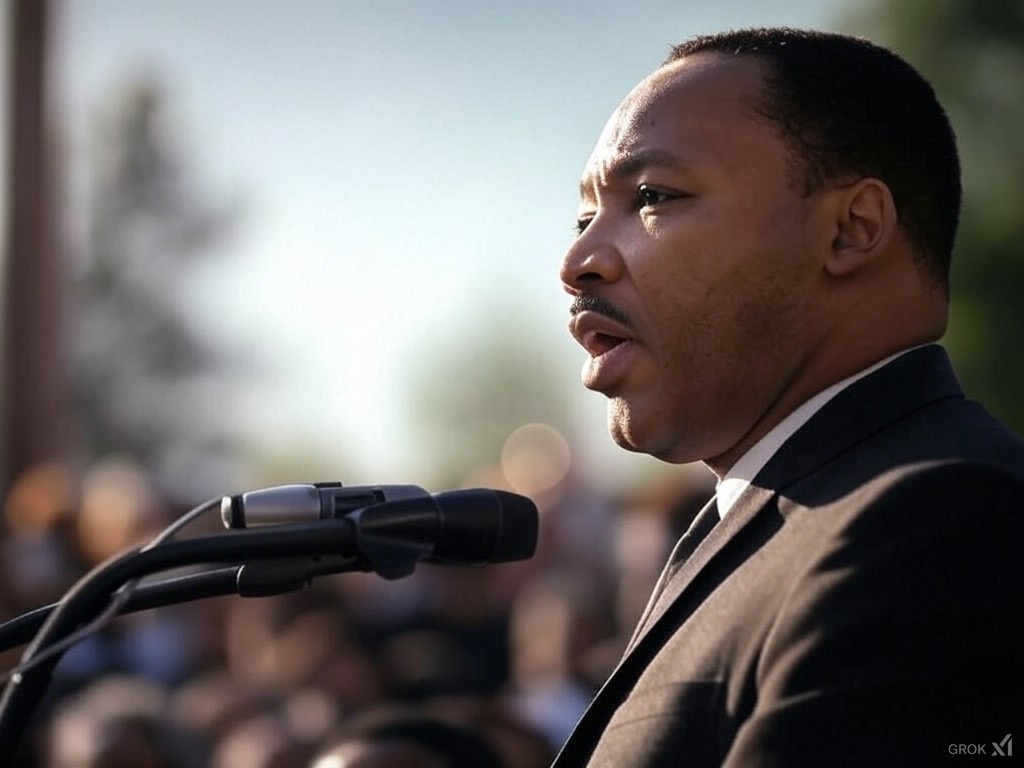WASHINGTON, D.C. — Across the United States, communities gathered on January 20, 2025, to honor the life, work, and enduring legacy of Dr. Martin Luther King Jr., a civil rights leader who transformed the nation’s conscience and inspired a global movement for justice and equality.
This year’s observance of Martin Luther King Jr. Day held particular significance, as it coincided with ongoing conversations about racial equity, social justice, and the enduring relevance of Dr. King’s dream. From Washington, D.C., to small towns across the country, Americans celebrated his legacy with marches, service projects, and renewed commitments to advancing his vision of a society where all people are judged by the “content of their character.”
A Legacy of Change
Dr. King, born on January 15, 1929, in Atlanta, Georgia, became a central figure in the Civil Rights Movement of the 1950s and 1960s. His philosophy of nonviolent resistance, influenced by Mahatma Gandhi, propelled landmark achievements such as the Montgomery Bus Boycott, the March on Washington, and the passage of the Civil Rights Act of 1964 and the Voting Rights Act of 1965.
This year marks 60 years since Dr. King received the Nobel Peace Prize in 1964, an acknowledgment of his unwavering dedication to nonviolence and equality. Reflecting on his achievements, historians and leaders emphasize the enduring power of his words, particularly his famous “I Have a Dream” speech, delivered on the steps of the Lincoln Memorial in 1963.

January 20, 2025: A Day of Unity and Service
In Washington, D.C., thousands gathered at the Martin Luther King Jr. Memorial for a wreath-laying ceremony, where civil rights leaders, government officials, and members of the public paid tribute to Dr. King’s contributions. Vice President-elect JD Vance and prominent civil rights activist Rev. Al Sharpton delivered remarks, highlighting the importance of bipartisan efforts to continue Dr. King’s work.
Across the nation, Americans engaged in a national day of service, volunteering at food banks, tutoring students, and revitalizing community spaces. In Atlanta, Dr. King’s hometown, the Martin Luther King Jr. Center for Nonviolent Social Change hosted an interfaith service and discussions on contemporary social issues, including voting rights, economic justice, and police reform.
The Ongoing Fight for Justice
Dr. King’s message remains deeply relevant in 2025 as the nation grapples with persistent racial and economic disparities. While significant progress has been made, leaders and activists stress that the fight for equality is far from over. Voting rights, wealth gaps, and criminal justice reform are at the forefront of national debates, echoing the challenges Dr. King confronted during his lifetime.
On this day, educators emphasized the importance of teaching younger generations about Dr. King’s legacy. Schools across the country incorporated lessons about his leadership, courage, and the sacrifices made by countless individuals who stood beside him in the fight for civil rights.
Looking Ahead
As the nation reflects on Dr. King’s enduring impact, Americans are reminded of their collective responsibility to uphold his dream. His words, “Injustice anywhere is a threat to justice everywhere,” continue to inspire action and unity.
January 20, 2025, stands as a powerful reminder that Dr. King’s legacy is not merely a chapter in history but a call to action for all who seek to build a more just, equitable, and compassionate world.


